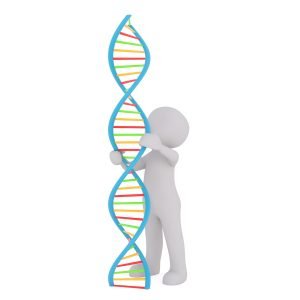Oral Cancer Genetics: Understanding the Role of Genetics in Oral Cancer
Oral cancer is a type of cancer that occurs in the mouth, including the lips, tongue, cheeks, gums, and throat. It is estimated that over 300,000 new cases of oral cancer are diagnosed worldwide each year, making it a significant public health concern. While lifestyle factors such as tobacco and alcohol use, poor oral hygiene, and human papillomavirus (HPV) infection are well-established risk factors for oral cancer, research has shown that genetics also plays a crucial role in the development of this disease. In this blog, we will explore the role of genetics in oral cancer and understand how genetic factors can influence its development.
Genetics and Oral Cancer: The Basics

In addition to these specific genes, there are also genetic variations known as single nucleotide polymorphisms (SNPs) that have been associated with increased risk of oral cancer. SNPs are changes in a single DNA building block, or nucleotide, in a person’s genetic code. These SNPs can affect the functioning of various genes involved in cell growth, DNA repair, and inflammation, which can increase the risk of developing oral cancer.
Our genes are segments of DNA that contain instructions for the development, functioning, and growth of our bodies. Genetic changes or mutations can occur in these genes, and some of these mutations can increase the risk of developing certain diseases, including oral cancer.

Genetic Syndromes and Oral Cancer
Certain genetic syndromes have also been found to increase the risk of developing oral cancer. For example, Fanconi anemia is a rare genetic syndrome that is characterized by bone marrow failure, developmental abnormalities, and an increased risk of developing various types of cancers, including oral cancer. Other syndromes such as dyskeratosis congenita, Peutz-Jeghers syndrome, and Li-Fraumeni syndrome have also been associated with an increased risk of oral cancer.
Family History and Oral Cancer
Having a family history of oral cancer can also increase an individual’s risk of developing the disease. Studies have shown that individuals with a first-degree relative (such as a parent or sibling) who has had oral cancer are at a higher risk of developing the disease themselves, indicating a potential genetic component to oral cancer risk.
Gene-Environment Interactions

Genetic Testing for Oral Cancer
Germline testing
This type of testing looks for genetic mutations that are present in a person’s germline, which are the cells that give rise to eggs or sperm. Germline mutations are inherited from a person’s parents and can be passed down to their children. Germline testing can identify mutations in genes such as p53, Cyclin D1, and other genes associated with genetic syndromes that increase the risk of oral cancer.
Somatic testing
This type of testing looks for genetic mutations that are present only in the tumor cells and not in the germline cells. Somatic mutations are acquired mutations that occur during a person’s lifetime as a result of exposure to environmental factors, such as tobacco and alcohol use. Somatic testing can help identify specific mutations that are driving the growth of the tumor and may guide targeted treatment options.
Ethical Considerations
Genetic testing for oral cancer raises several ethical considerations that need to be carefully considered. These include issues related to privacy, confidentiality, informed consent, and potential psychological and emotional impacts of the results. Genetic testing may also have implications for an individual’s family members, as genetic mutations can be passed down to future generations. Therefore, it’s important to carefully weigh the potential benefits and risks of genetic testing and ensure that individuals undergoing testing are fully informed and supported throughout the process.
Conclusion
Genetic factors play an important role in the development of oral cancer. Mutations in specific genes, genetic syndromes, and gene-environment interactions can increase the risk of developing oral cancer. Genetic testing can provide valuable information for individuals at increased risk, guiding screening, management, and treatment decisions. However, genetic testing for oral cancer should be done under the guidance of a qualified healthcare professional and with careful consideration of ethical issues. If you have concerns about your risk of oral cancer or a family history of the disease, it’s important to speak with your healthcare provider to discuss appropriate screening and management strategies.